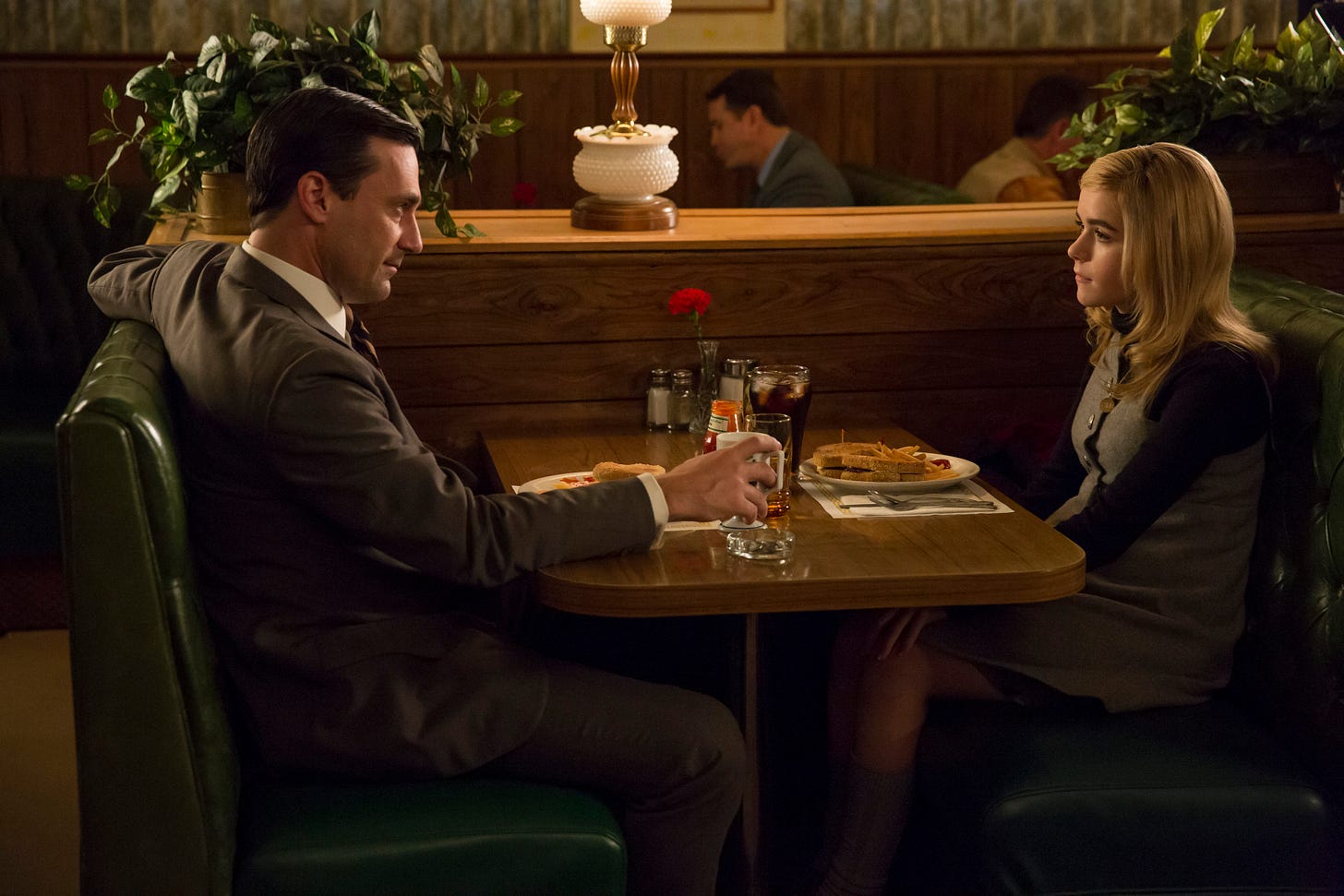
How do you write a best of list for TV in the 2010s?
I mean, really. This is a decade that saw television start with a list of generally accepted “good shows” that gradually splintered into a million pieces and none of us could agree on much of anything. So, pretty much the same as everything else in this awful, hellish decade.
The task of actually producing a list in any kind of vaguely objective way is impossible. There’s far too much we all haven’t seen. Perhaps there was some Sopranos level game changer that just came and went completely unnoticed. As such, this can only ever be the TV that meant the most to me. It’s not a perfect list, and certainly fails to be a representative one. But it’s the closest thing I could give to a description of who I was and what I valued these past ten years.
Let’s get on with the ranking.
20. Watchmen (2019)
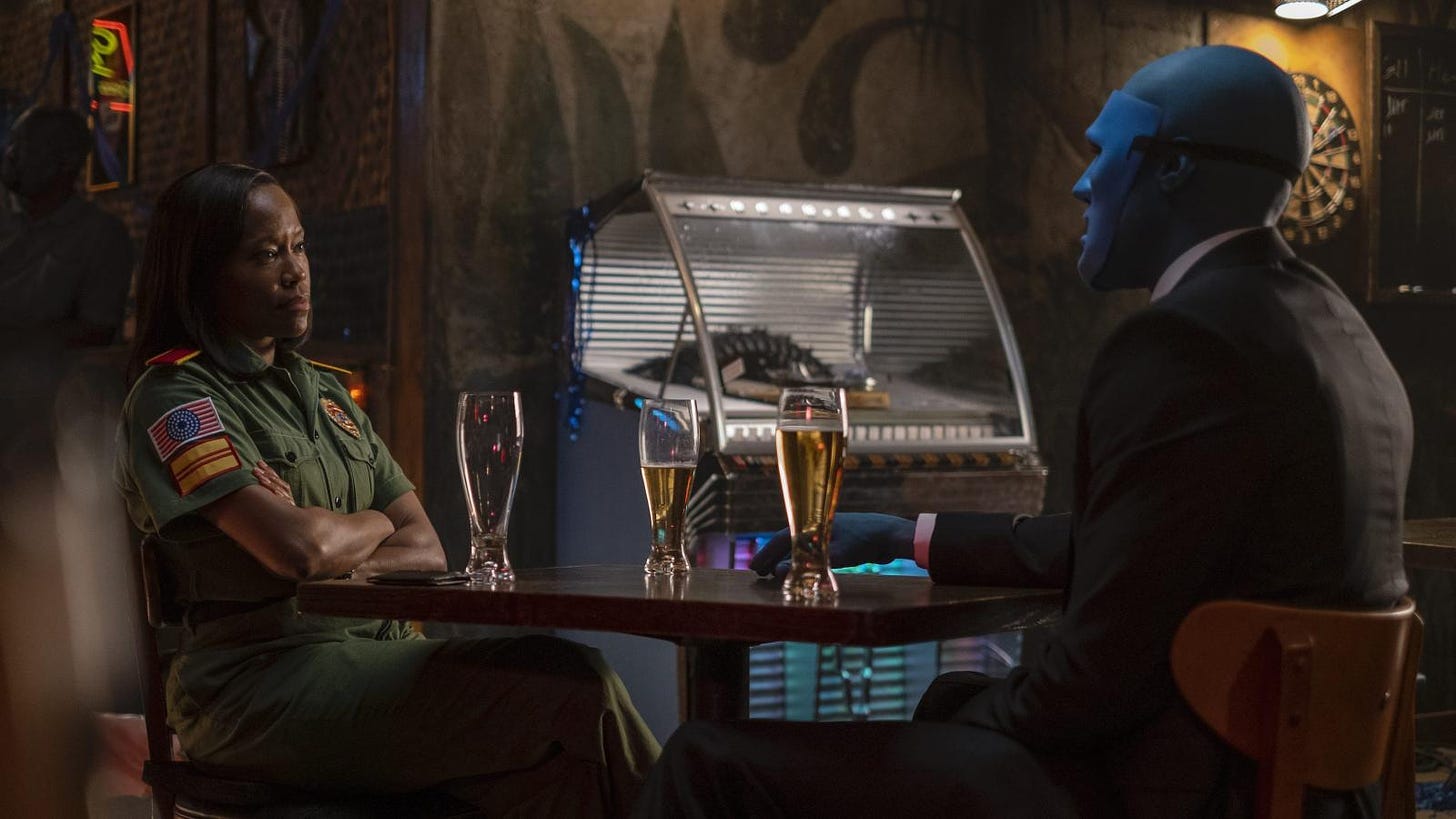
In some ways it feels awfully rash to put the nine episodes of Watchmen on this list. Leaving it at number 20 is in truth hedging my bets that it won’t evaporate completely from my mind in five years. Its politics are, it’s fair to say, as muddled as one would expect from a Pete Buttigieg supporting liberal like Damon Lindelof trying to recapture the radical left wing anarchist worldview of Alan Moore. Rooting the series in questions of white supremacy and racism in America provide so much power but also reveal such blindspots on his part, from its bizarre decision to lean into negative Asian stereotypes with Lady Trieu and its understanding of Vietnam’s relationship with America to its, yes, idea that the police are if not allies against white supremacy then at least capable of being so.
But when Watchmen gets it right, it’s just awesome. On an episode to episode level, this was some of the most delightfully constructed TV we saw all decade, showing the real value of the medium when it’s not trying to emulate film. Lindelof can frustrate when you’re not on his wavelength, yes, but when you’re tapped in there’s nothing quite like what he can do, mixing the ability to be both totally out there with a populist, accessible streak. Had Watchmen come out in the earlier years of the 2010s, it might not have felt so special, but in 2019 it felt like a revelation.
Best season: 1 (duh)
Best episode: “This Extraordinary Being” (season 1, episode 6)
19. Breaking Bad (2008-13, only episodes from season 3 onwards counted)
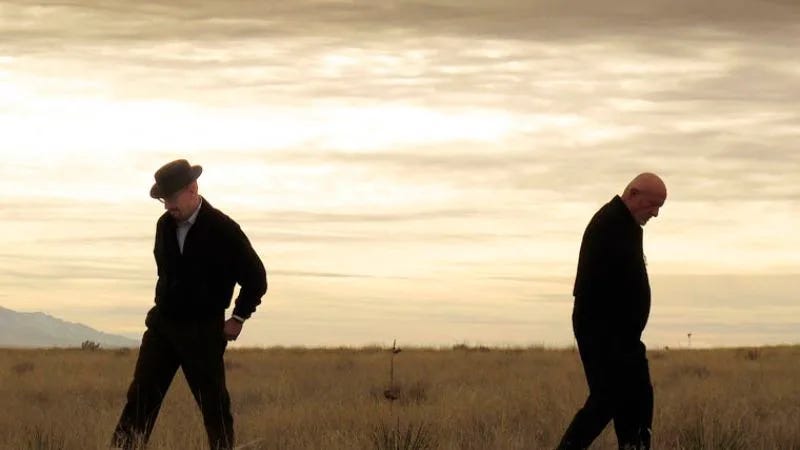
The years have been simultaneously kind and cruel to Breaking Bad. On the one hand, we’re talking about a show in which a brilliant educated white man instantly proved to be a much better crystal meth producer than all of his predominantly latino rivals from less comfortable backgrounds, in which not just the police but the Drug Enforcement Agency are the real heroes, honest people trying to do good in the world. Breaking Bad has a way of shooting poverty in which it almost seems disgusted by it, offended by the way the poor behave in society. It’s a show that is not exactly un-problematic.
On the other hand, everyone and their dog has tried to recapture the magic here to very poor results. In anyone else’s hands, Walter White would have all but broken bad by the end of the first season, then spent the next four treading water before whatever the big payoff was. Bad was intensely serialised, yes, but never in a way that devalued the need for every episode to really offer something. But the thing that stood out the most upon rewatch is how deeply unsexy this all is. I’m not sure there’s ever been a massively popular work of media to be so against portraying any of this as at all sexy. A lesser show would have failed in a lot of ways, but none more so than suggesting anything about Walt was cool or desirable. Breaking Bad got what kind of show it was.
Best season: 3
Best episode: “Ozymandias” (season 5, episode 14)
18. My Mad Fat Diary (2013-15)
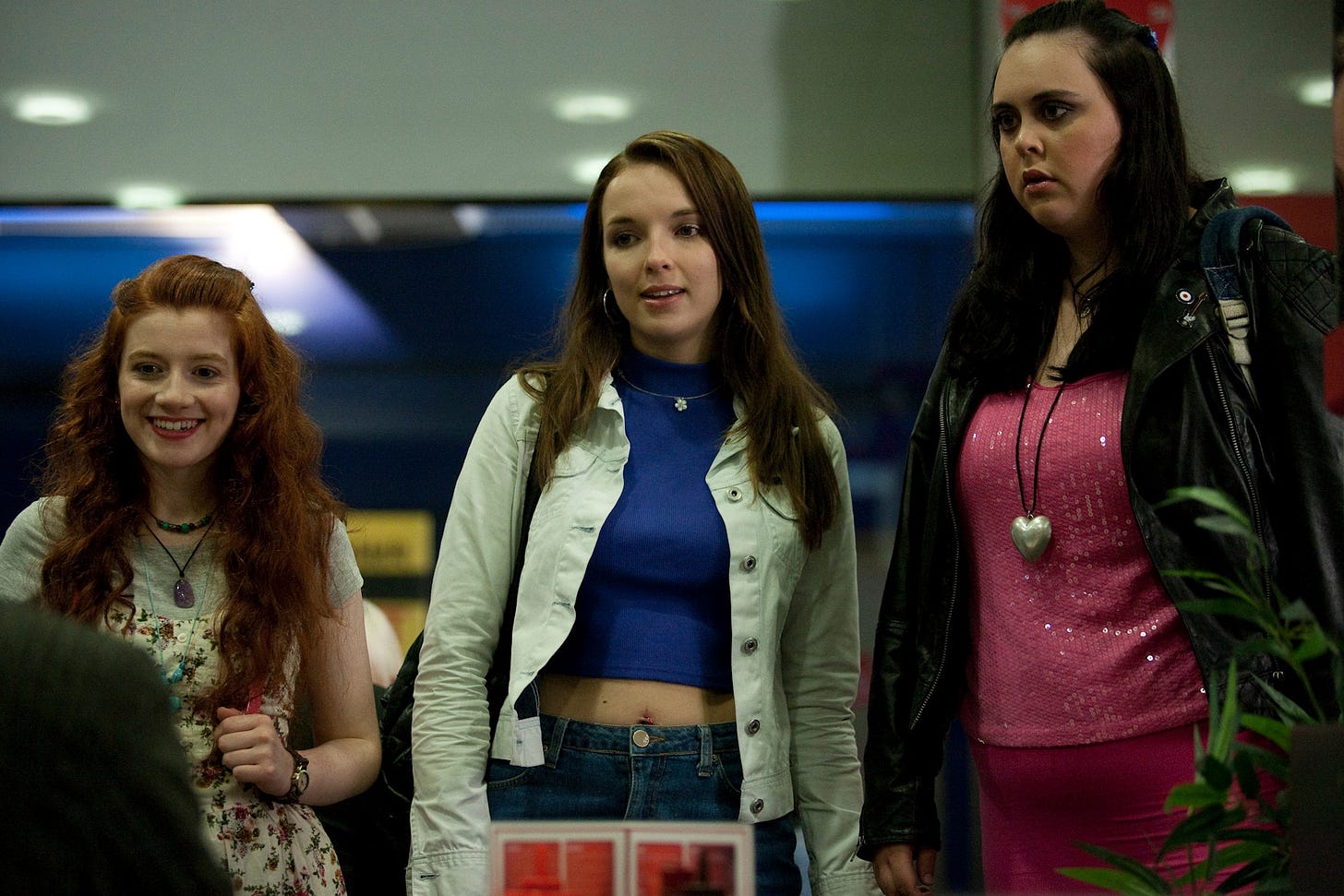
I don’t like British TV very much. A lot of this is just a nation-level expression of my own self-loathing, but much of it is a genuine dislike for this country’s aesthetic preferences. Britain, in art and in general, tends to value some meaningless metric of appearing “clever” over having something to say, prefers sneering at the back to caring about things, offers literalism instead of imagination, and doesn’t care to think about people living outside of the wealthier parts of London.
My Mad Fat Diary was not any of those things. It dealt with real mental health issues in teenagers, but never in a preachy or forced way. It looked at its characters with compassion but honesty. It was defiantly anti-London. It cared about its story and its people. It made people going through things feel less alone, and that might be the most powerful thing television can offer.
Best season: 1
Best episode: “Not I” (season 2, episode 6)
17. True Detective (2014-19)

Yeah, yeah, backlash, whatever. Who cares? The first season of this show was built to both conform to TV’s worst surface level tendencies while totally disrupting them in its core DNA. “Great TV” is supposed to present itself as such on the page, getting to a core narrative structure that’s expressed by everything else. If you get down to True Detective season one’s core story, there’s not much there, but this is entirely the point. This show used a simplistic structure to root its ambition in solid ground, while so much of TV trains us to expect the opposite.
Of course, Nic Pizzolatto decided to listen to the criticism and make a second season much more narratively complex that immediately turned into nonsense. It had some interesting aesthetic ideas, which could have gone somewhere in another world, but ultimately the whole thing was for nothing. Thankfully, the show found its footing again in a third season rooted in something of a variation of the first, and it’s enough to suggest a fourth might be worth waiting for. But that first year. Damn. That’s something to remember.
Best season: 1
Best episode: “The Secret Fate of All Life” (season 1, episode 5)
16. Westworld (2016-present)
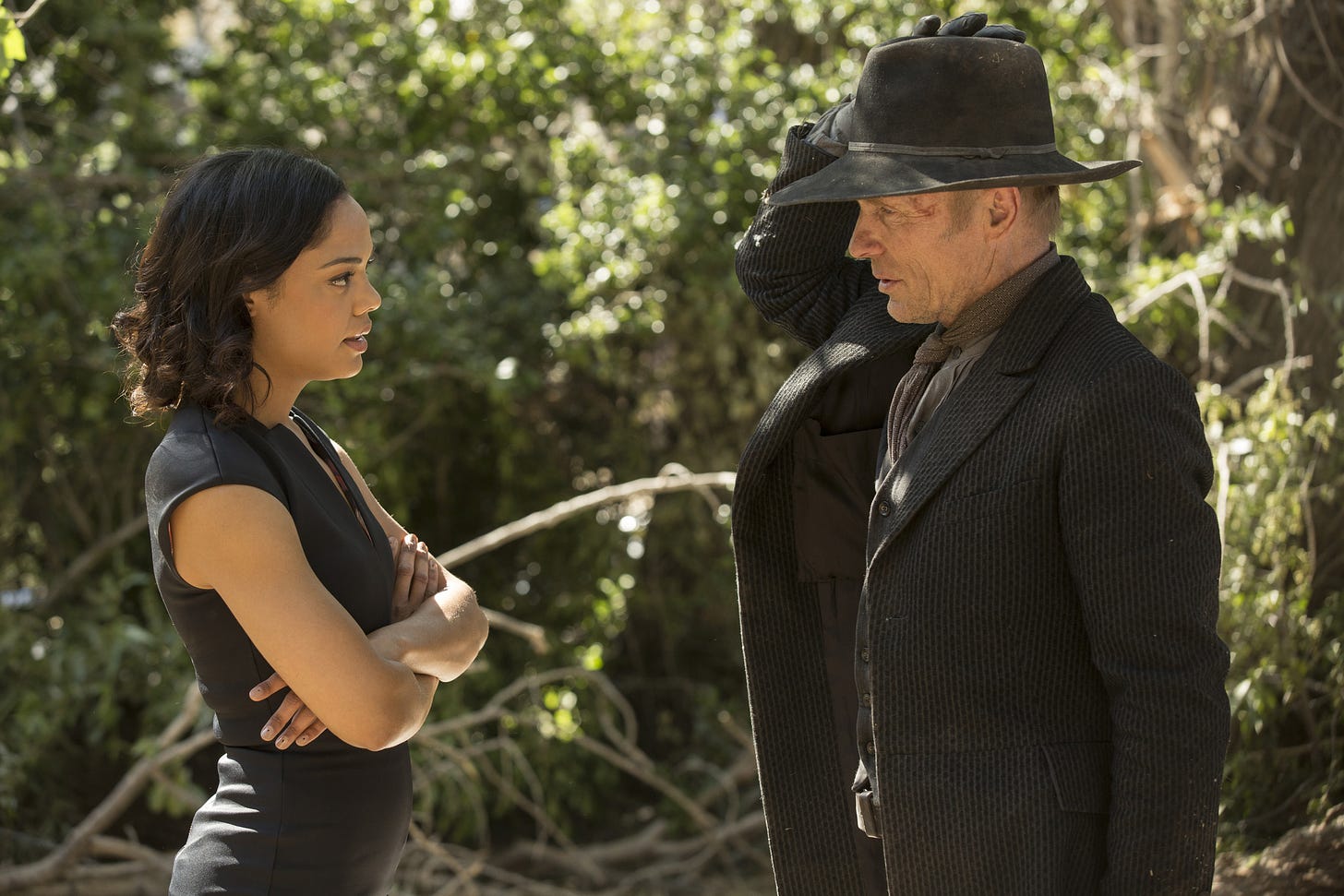
From a show that roots its ambitions in a straightforward narrative to one that is all about narrative complexity. The most common knock against Westworld is its impenetrable icy coldness, its penchant for feeling like an instruction manual. This is, I would suggest, the entire point. It’s not a show arguing, as often assumed, that robots are people, but that people are robots. A lot of pop culture deals with the question of whether free will exists, but it’s refreshing to see a big HBO sci-fi show like this come down firmly on the side of “no”. We’re all rats in a maze to Lisa Joy and Jonathan Nolan.
This feels like a swing in that Westworld could absolutely drop the ball at any moment. It’s doing the hardest kind of TV storytelling, serialised mythology-heavy sci-fi where things are supposed to pay off later, and doing it to great effect. We could easily see the show struggle to bring threads together, or veer so deep into its own details that it becomes nonsense. I don’t think it will, though. The show is doing this kind of stuff better than anyone right now, and even if it doesn’t work out in the end, they’ve taken us on a hell of a ride.
Best season: 1
Best episode: “The Bicameral Mind” (season 1, episode 10)
15. Looking (2014-16)
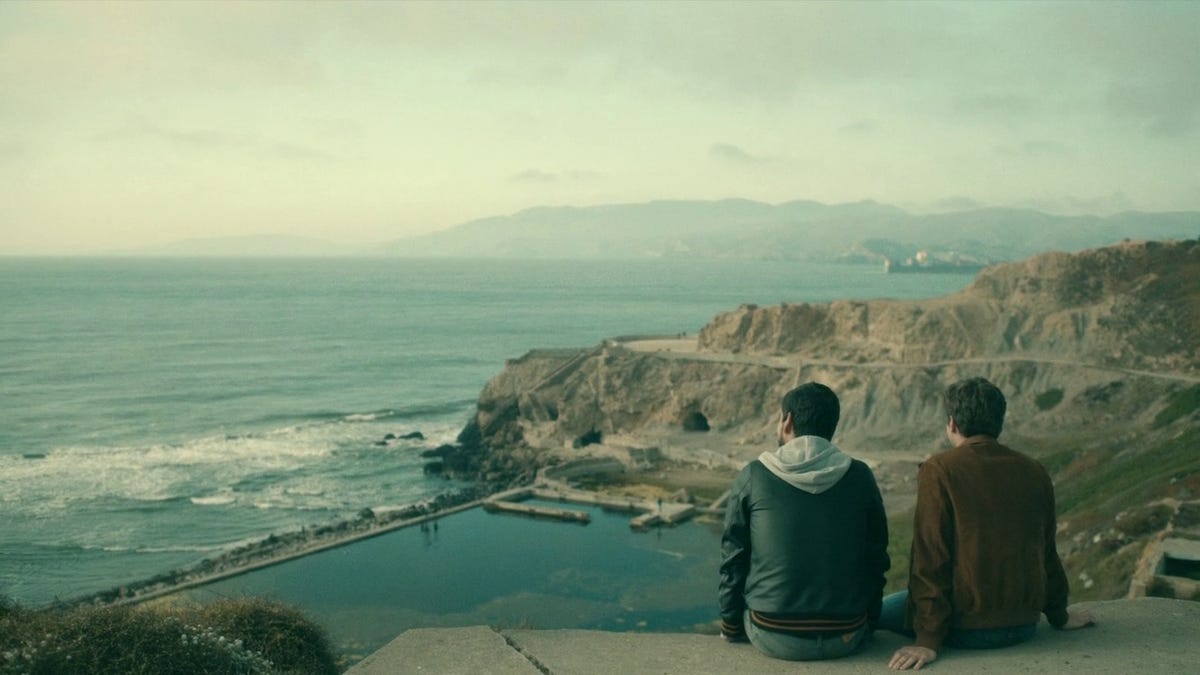
A lot of low rated, cancelled-too-soon shows are deliberately obtuse, but Looking was an entirely open hearted and accessible show that just couldn’t find its audience. The only knock against it was in its small scale, quiet storytelling, but that’s really why it felt so natural to jump into. Looking was often compared to something like Girls, with its very consciously unlikeable people, but in reality it was very much a show where you were invited to fall for and care about these people.
Perhaps the sad truth is that Looking couldn’t succeed not because it centred on gay men, but because it only centred on gay men. A show like Transparent, for example, filtered its understanding of its trans woman “protagonist” almost entirely through the cis people in her life. Looking, like so much of Andrew Haigh’s work, dared to take that filter away, to declare “we are not defined by straight people”. In HBO’s eyes, the show was defined by the straight people who didn’t watch it, but they don’t matter. What matters is that Looking exists, and we saw it.
Best season: 2
Best episode: “Looking for the Future” (season 1, episode 5)
14. The Leftovers (2014-17)
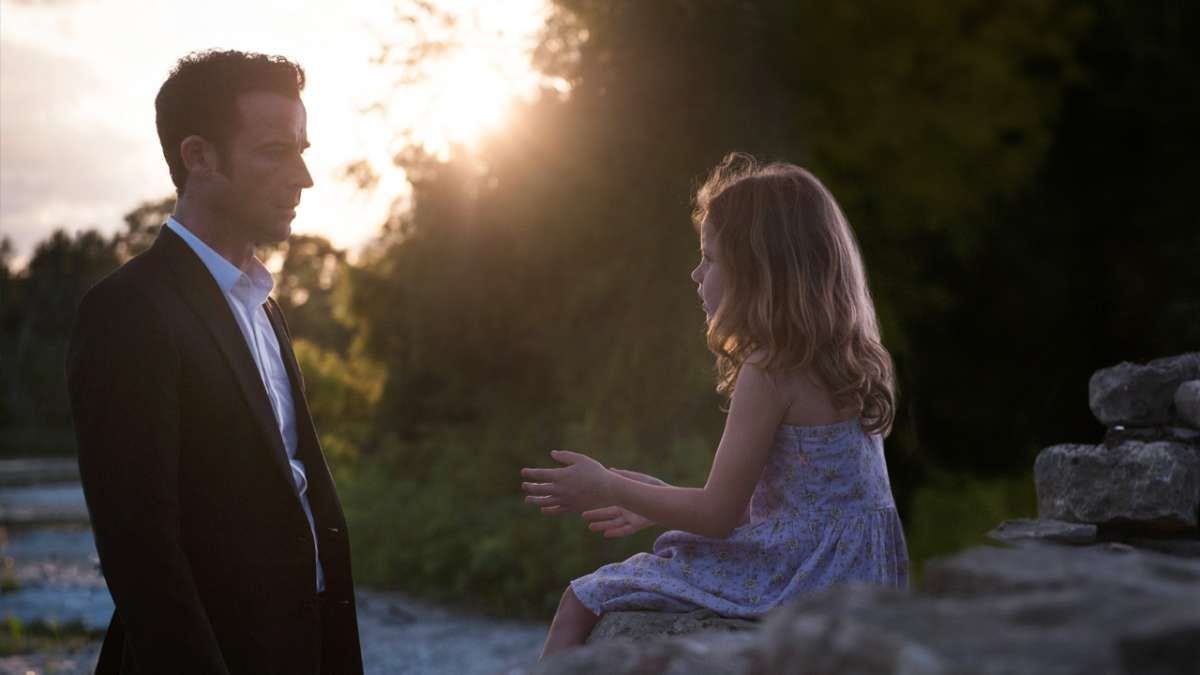
Another entry from Damon Lindelof’s weirdo, normie, weirdo-normie mind. I have to say this one took a long time to really work its charm with me. The first season was so aggressively into its own sadness, in a strange display of “look how emotionally rich my depression is” that ended up being the only time I’ve ever really doubted Lindelof. It turned out that Leftovers spirit just needed a good mixer, and a better blend of genres in the second and third seasons really enrichened the “but what does it all MEAN though?” of it. Leftovers lacked the more populist sensibilities of Lost and Watchmen, but it’s undoubtedly the purest distillation of Lindelof’s relationship with the unknowable. And if you think I wouldn’t be into that, then you probably don’t know me very well.
Best season: 3
Best episode: “International Assassin” (season 2, episode 8)
13. American Crime Story (2016-present)
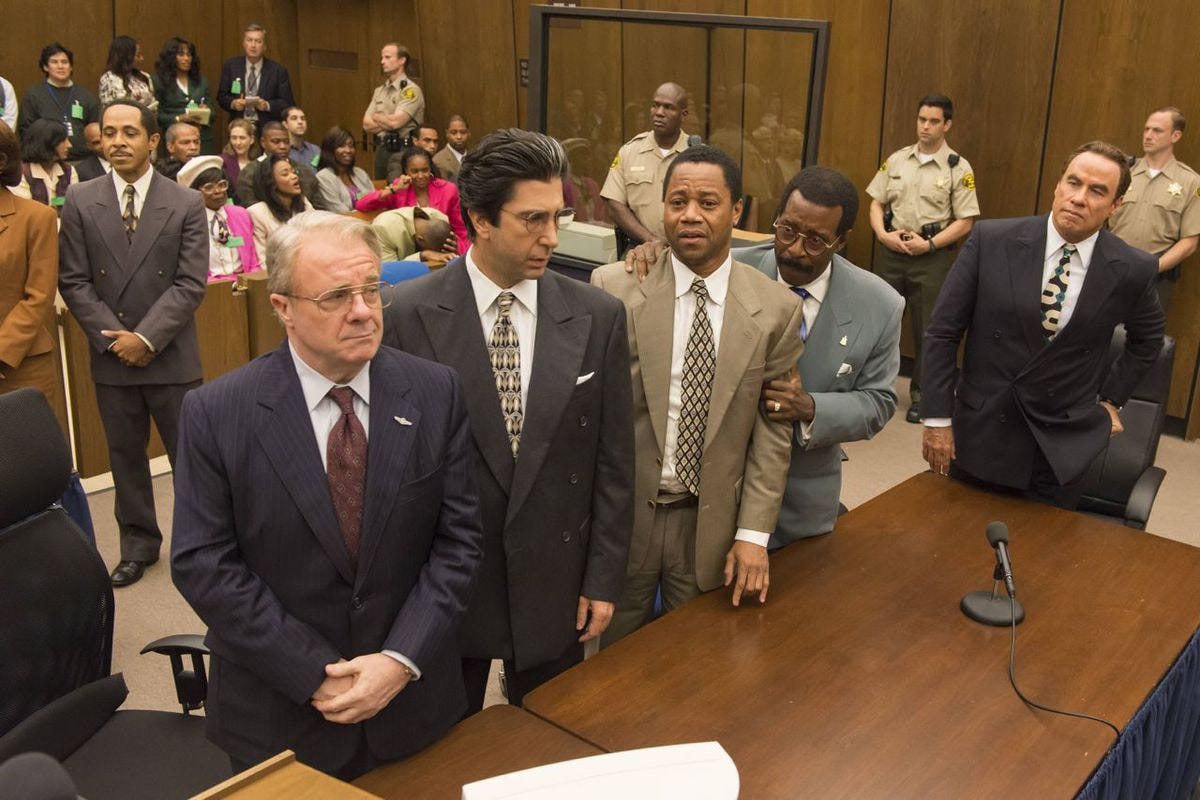
We like to remember important events through a very serious, prestige lens, but that’s not how most experience them in the moment. Everything that has ever mattered has been consumed by the masses as tabloid trash, and it took TV’s finest provocateur Ryan Murphy to get this. The first season, primarily written by Scott Alexander and Larry Karaszewski, took the O.J. Simpson case and opted to make it about everything except O.J., showing us the world in the 90s and how the media glare only paved the way for the hellscape of the 2010s. The Tom Rob Smith written second season on the murder of Gianni Versace was a different beast, without the punchiness or hooks of “O.J.” but no less rewarding for it. I have concerns that season 3, centred on the Bill Clinton impeachment trial, could go a little too heavy handed in the #RESIST of it all, but nonetheless this has been an enthralling look into the moments that defined the world as it came to be.
Best season: 1
Best episode: “Marcia, Marcia, Marcia” (season 1, episode 6)
12. The Americans (2013-18)
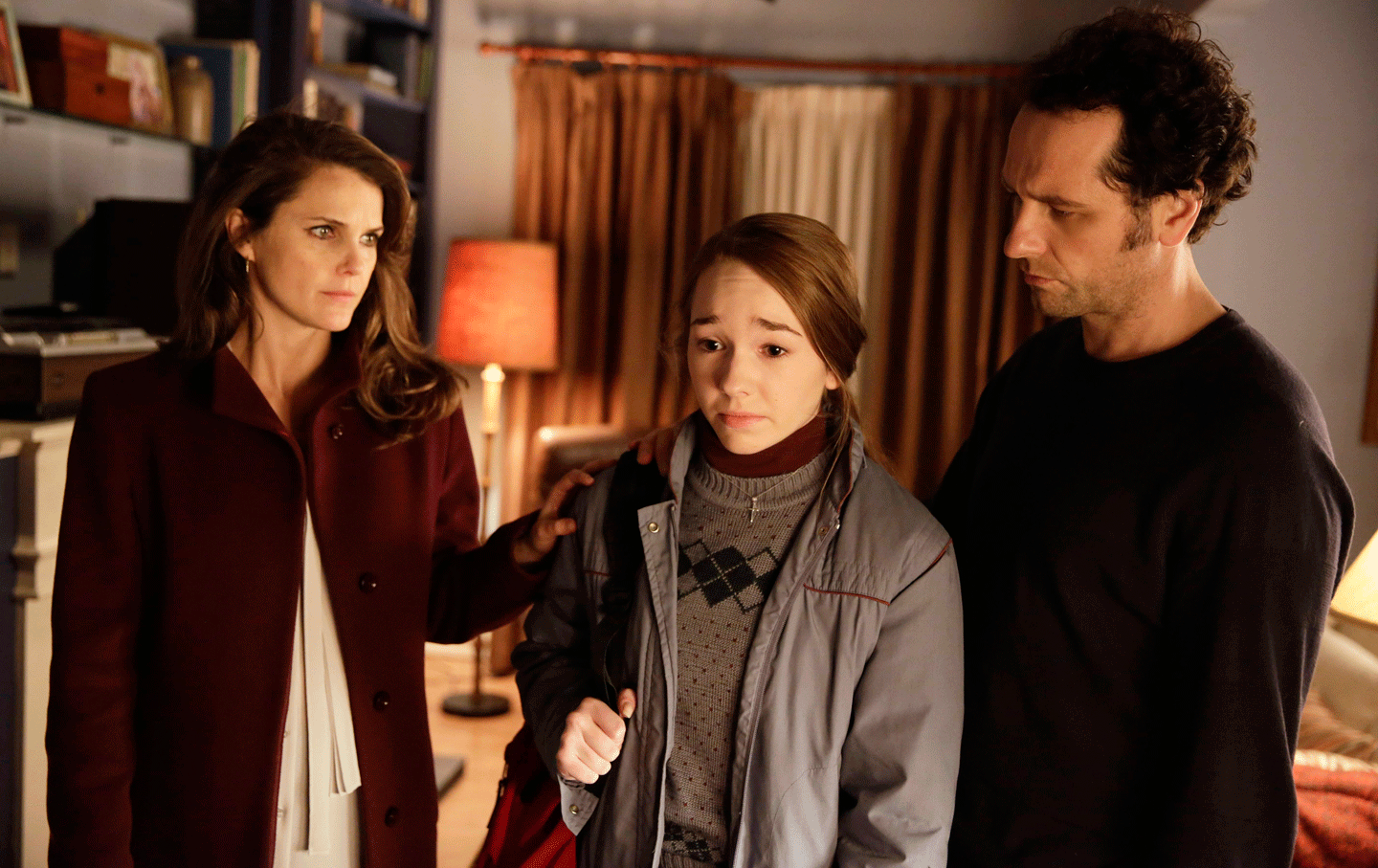
The antihero genre of prestige TV has spent a lot of time exploring what it means for characters to do bad things for selfish reasons, out of their own vanity or financial desires or you name it. What separated The Americans is that Elizabeth and Phillip do what they do not for themselves but for a commitment to the cause. Despite its Cold War premise that led to all sorts of How It Is Relevant To Right Now headlines, Americans isn’t really about politics at all. It’s about what it means to belong to something greater than yourself, be it a marriage, a family, a political organisation or a nation state. There’s a historical case to be made for this show as the final chapter in the antihero era, and with so much of the genre centring the self, this show was about what it means to look beyond that. It was often a prickly show, difficult to love, and I myself took an embarrassingly long time to warm to it. But once it worked its way in, I was utterly smitten with it.
Best season: 4
Best episode: “Stingers” (season 3, episode 10)
11. Girls (2012-17)
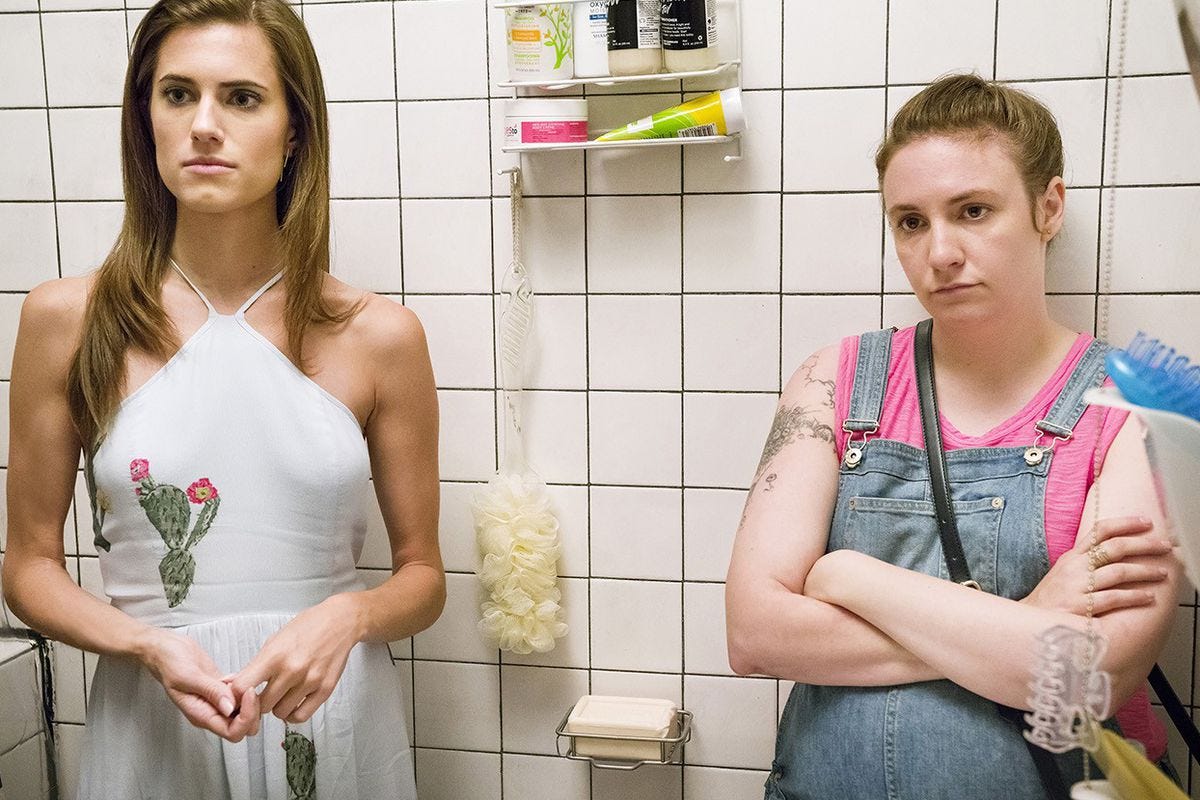
A lot of what felt totally fresh in the first half of this decade suddenly felt horribly out of step in the second, which led to a lot of tragic falls from the zeitgeist overnight among many similar shows to this one. Girls, though, always had a quality of being slightly out of touch from the word go, like a baby boomer’s projection of how millennials behave, so if anything becoming even further from the truth of the world today has only helped it. It’s funny in hindsight how revolutionary that first season felt in 2012, but it really was doing things on a storytelling level that just didn’t exist on the small screen until then. Discursively it is arguably the defining show of the decade, sparking the beginning of the Bad Internet we know today. But strip that all away and what you’re left with is some really strong TV storytelling, a set of terrific performances including a breakout role from Adam Driver, and a show that really understood itself in a way that nothing else in Lena Dunham’s career has.
Best season: 1
Best episode: “On All Fours” (season 2, episode 9)
10. Parenthood (2010-15)
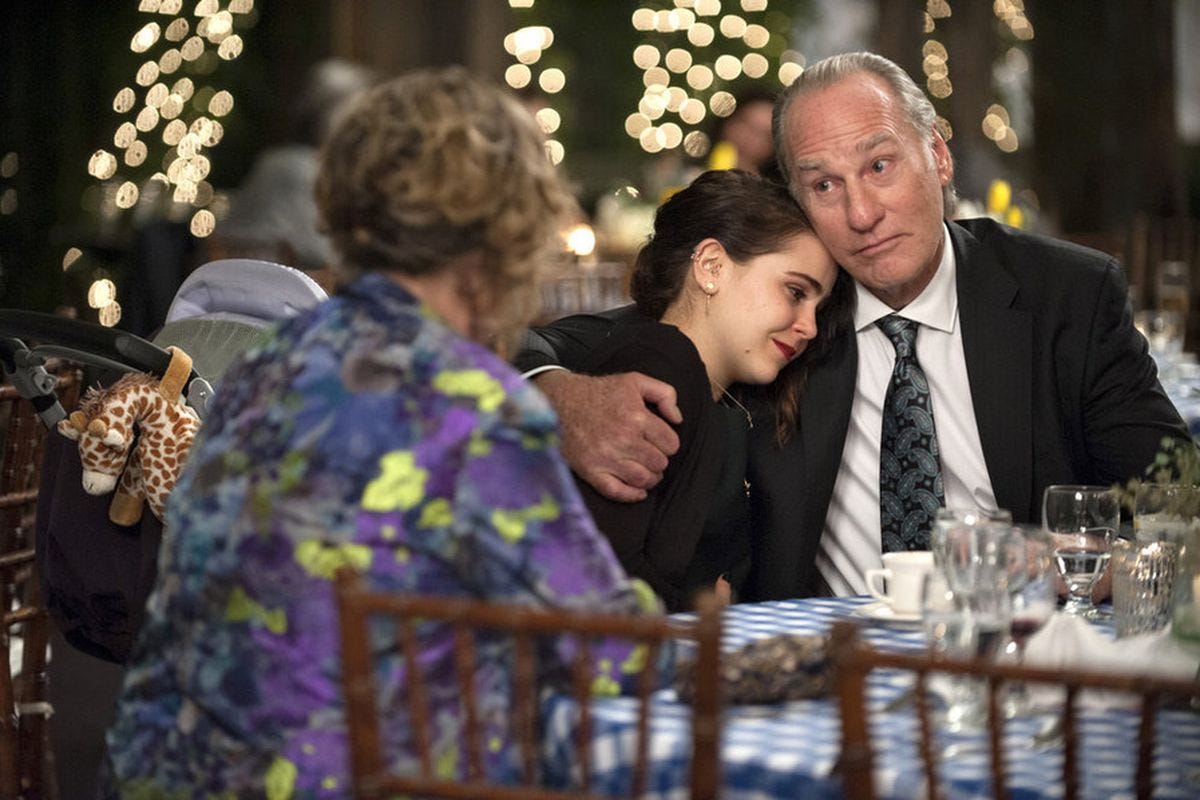
Premises, hooks, original concepts: these things are often wildly overrated. If you can take the classic tropes and execute them beautifully, then that’s worth ten shows that have nothing but a clever idea. Parenthood is the most straightforward show on this list: there’s this family, and they go through all the archetypal TV character drama plots. It’s too easy to overthink TV sometimes, to try and find some rube goldberg machine to get to the meat of what you actually want to do. Jason Katims and co just cut right to the chase. This is another show that feels awfully out of step with the world as it exists today, with its focus on a wealthy white family and fundamental denial that any other kind of problems exist, but it at least never promised to be anything else. What Parenthood was able to do was spend so long filling in the details of these characters (which a modern show with shorter seasons could not) to the point where their flaws were irritating in a way that absolutely resembled real people. The show pulled off the ultimate trick of making you feel like a part of this family: you hate them, but you love them.
Best season: 4
Best episode: “Road Trip” (season 3, episode 12)
9. Rectify (2013-16)
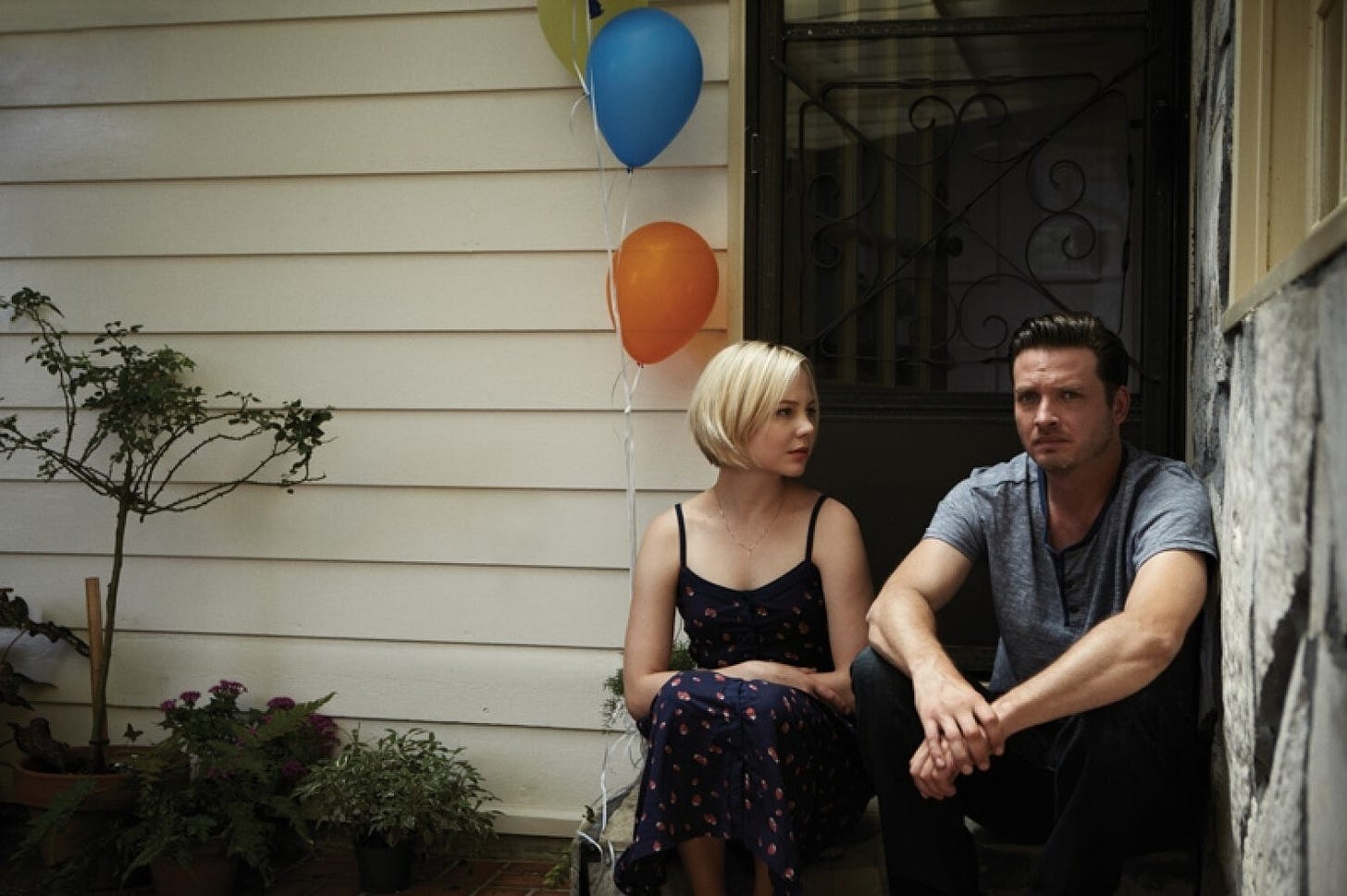
Majesty in the mundane, the cosmic awe of everyday life. Rectify presented itself as a particularly political show, about a man returning from two decades on death row, but in its existence revealed itself to be a much more spiritual one. In lesser hands, the temptation to make this show about The World Right Now might have been too great, the desire to tell a story about the criminal justice system and christian conservatism in rural Georgia just too low hanging fruit to avoid. And in fairness, the show could improve on its politics in some ways, with Daniel Holden’s whiteness making him an exception among death row inmates never really dealt with. But when it comes to the richness of its humanity, its ability to touch on grand spiritual ideas without ever leaving its grounded world, there was just nothing quite like it on TV this decade.
Best season: 2
Best episode: “Weird as You” (season 2, episode 7)
8. Steven Universe (2013-19)
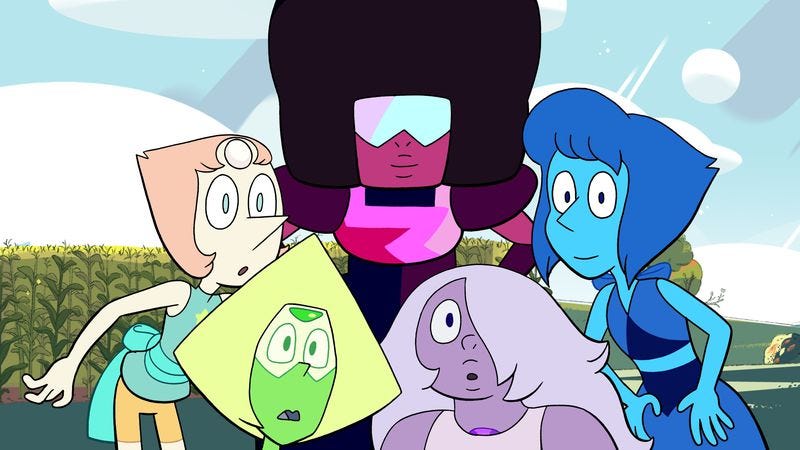
It’s not just that it’s the most sweet hearted TV show of the decade, though that is certainly one of its strengths. Being nice does not, as seems to be the prevailing opinion, make something great; it simply makes it nice. It’s not just that it’s full of queer representation that feels intrinsic to the story rather than stuck on, though again that’s a positive. It’s not just that it’s the best science fiction series of the decade, weaving a complex serialised narrative that outdid all its live action adult siblings, though that’s a big part of it. It’s not just that it was a great small town hangout show whenever it want to be, or a great show about forged family, though that’s a core element. It was all those things. It was the best at everything it wanted to be, whenever it wanted to be. It was a kids’ show that never felt like it thought of itself being better than a kids’ show, even though it happened to be so much more. A true delight.
Best season: 2
Best episode: “Sworn to the Sword” (season 2, episode 5)
7. Nathan for You (2013-17)
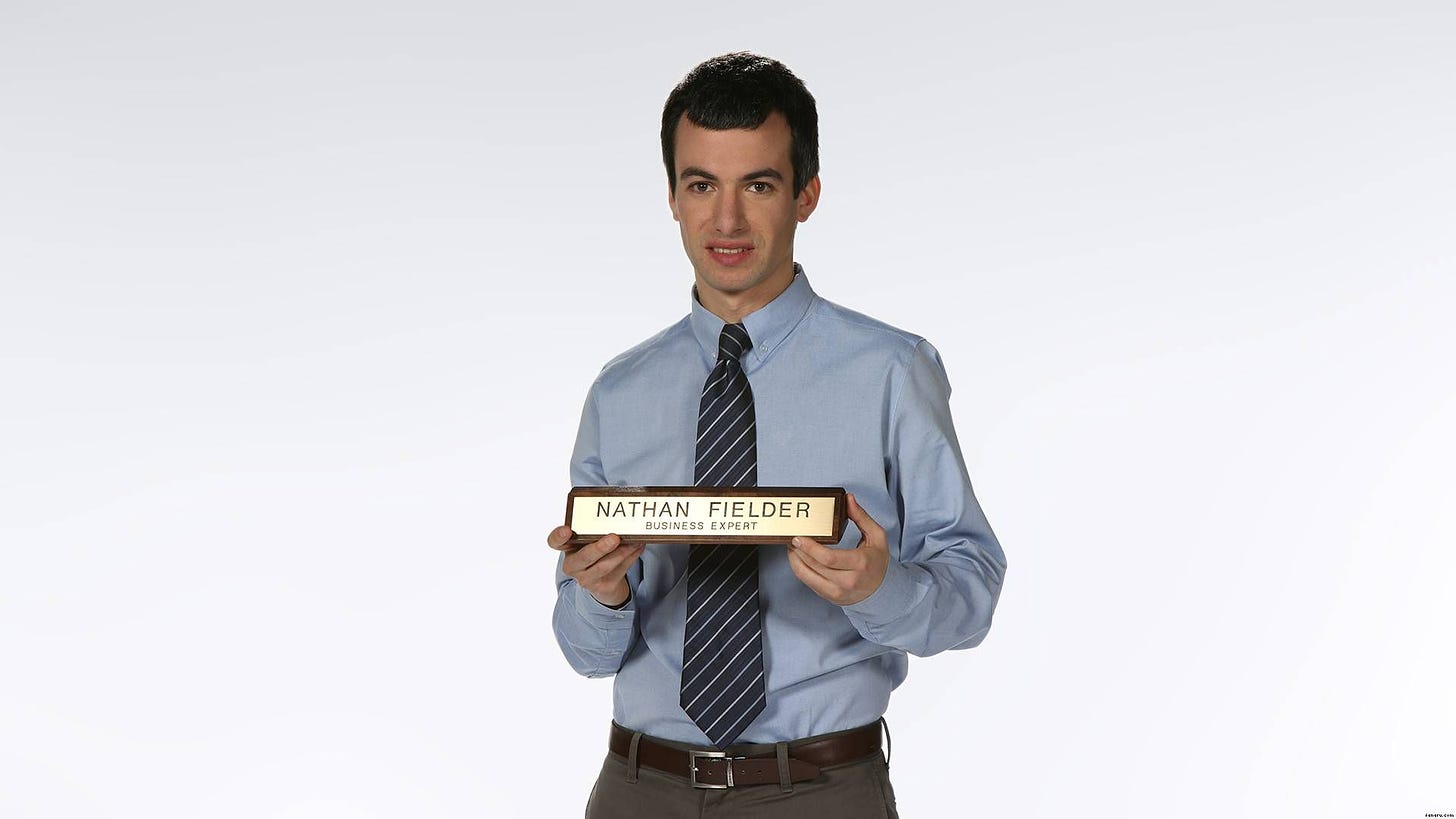
Many shows that premiered early in this decade, particularly the kind of comedies from Comedy Central (*cough* Broad City), became relics of a different time, of a world of permanent liberalism in which safe diversity was inevitable. Nathan for You might be the only one to actually feel prescient, to illuminate the ways society was breaking down before any of us really noticed, all through a silly construct of providing ridiculous business ideas to real people. There’s supposedly a saying at NASA that you should never apply a Star Trek solution to a Babylon 5 problem, and Nathan for You really exists to demonstrate this. A typical episode follows Nathan visiting a struggling business, suggesting some utterly ridiculous solution to boost revenue, and watches as the business owner sees Nathan actually go through with the idea. The show is really in the actual people Nathan meets, as Fielder and his awkward personality exist as a conduit for the peculiarities of the general public, and how increasingly isolated and messed up we’ve all become. Like The Simpsons in the 1990s, if you’re reading this in a hundred years and want to understand the world as it existed in the 2010s, watch Nathan for You.
Best season: 3
Best episode: “The Hero” (season 3, episode 8)
6. Enlightened (2011-13)

For all that ideas around mental health, environmental sustainability, wellness and corporate fake progressivism became buzzwords as this decade matured, they were tackled most gracefully by Enlightened, which felt like miraculous TV at the time but has become nothing short of a parable in 2019. Laura Dern, with what is surely the strongest performance on television in the 2010s, centred Amy Jellicoe as someone desperate to be the change in the system while simultaneously intoxicated, as we all are, by capitalism’s own attempts to withhold and sell us our own rightful peace of mind. In what was a wonderful decade for auteur-driven half-hour dramedies, Mike White’s ranks here as the best, a step ahead of everyone else, and a true gem up there with the very finest TV HBO has ever produced.
Best season: 2
Best episode: “All I Ever Wanted” (season 2, episode 6)
5. Sense8 (2015-18)
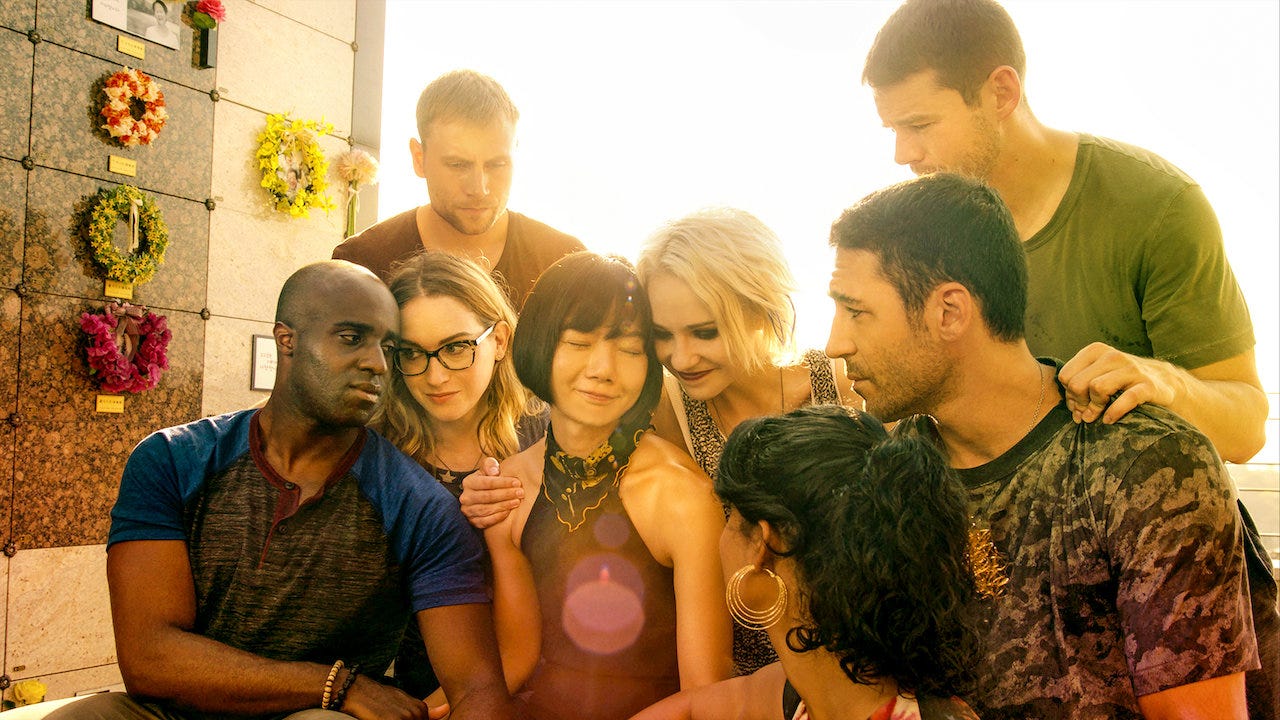
The next three shows on this list can only be described as “fucking weirdo shit”, but all are masterpieces in their own way. Sense8, created by The Wachowskis and J. Michael Straczynski, might be the best expression of the themes the former pair were really getting at with Cloud Atlas but didn’t quite nail until this show. It’s at its core about the very goofy, new age-y idea that all of us are fundamentally one, that what binds us together as human beings is greater than what divides us, that the greatest religion of all is belief in the human spirit. Like so much great science fiction, it uses some complex conceits to express universal ideas. It paints with the broadest brush of any show on this list, but it’s working on the biggest canvas. It is the most show of the decade, and at times the most beautiful. The world is a better place for Sense8 existing.
Best season: 1
Best episode: “I Can’t Leave Her” (season 1, episode 12)
4. Twin Peaks (2017)
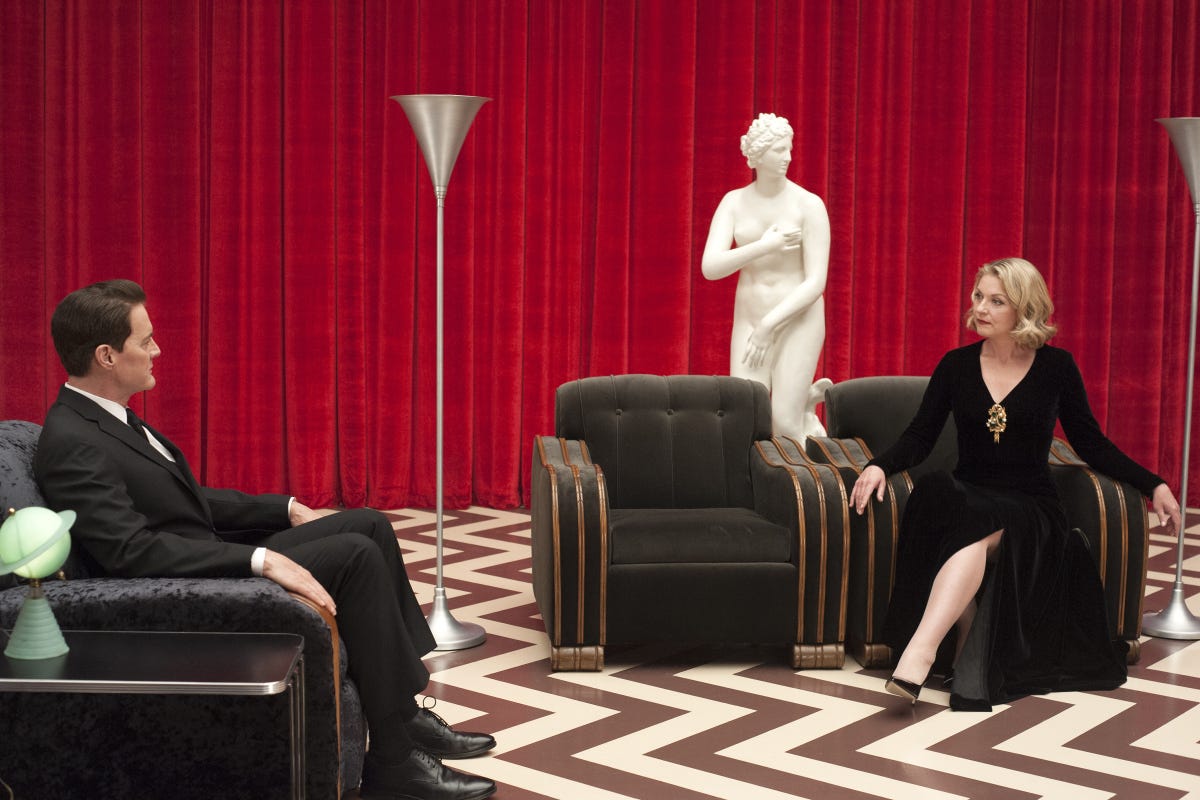
Just how far can TV go as a medium? What can you do with it? Mark Frost and David Lynch gave us the most genuinely out there work ever produced for the small screen, so much so that some have tried to frame it as cinema, as though it’s too much “art” for TV. That, to my mind, is nonsense, as Twin Peaks thrived in breaking up the structures and rhythms of serialised weekly television (it really had to be seen weekly) as well as being a continuation of, you know, the original Twin Peaks. Most of these descriptions have talked about “what it’s about”, but in truth I don’t know how to describe what this show was about. But it certainly represents the most formally daring the medium has ever gone in its history, and likely will for some time.
Best season: 3 (shocking, I know)
Best episode: “Part 8” (oh, you can figure it out)
3. The OA (2016-19)
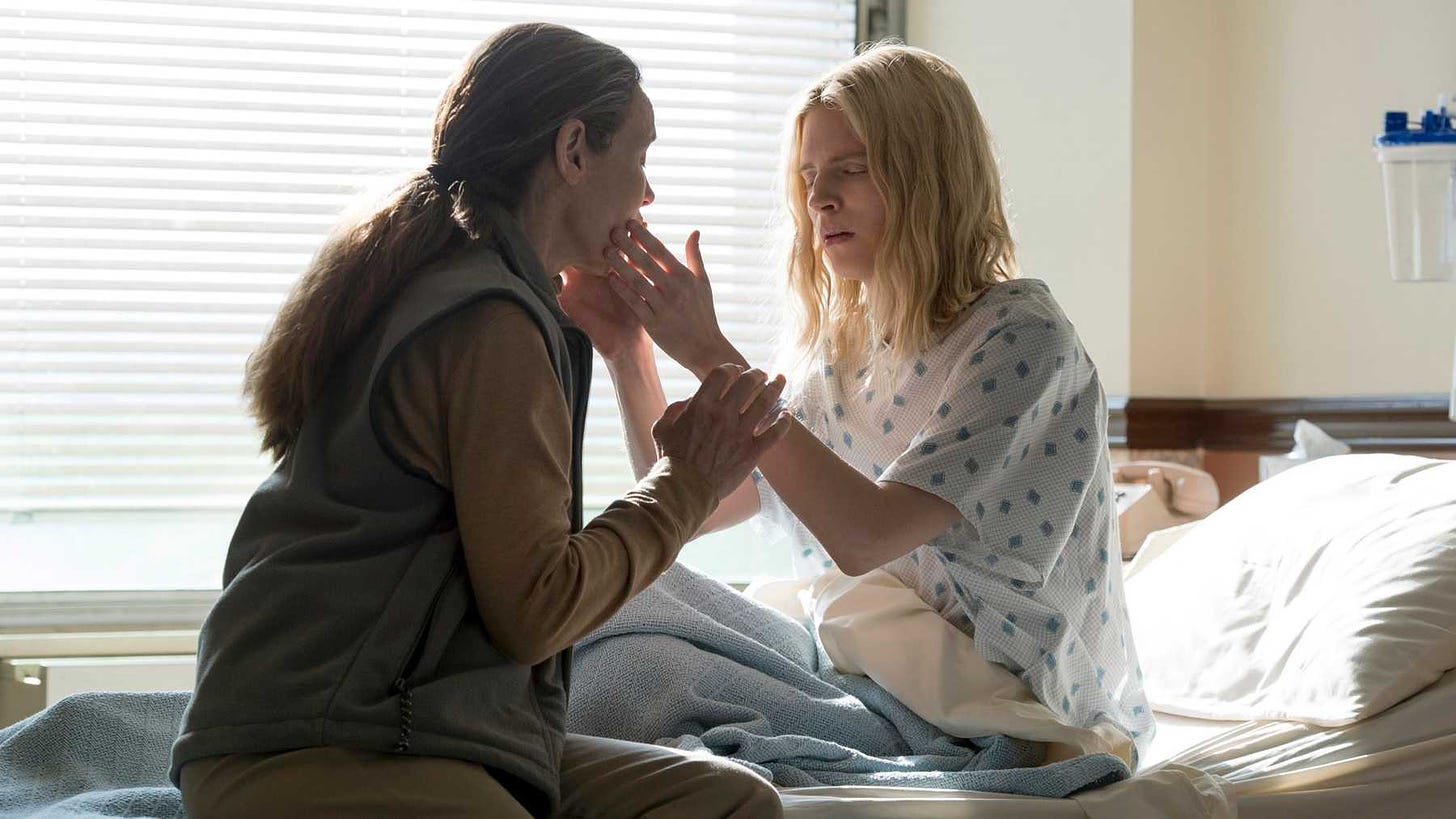
There was plenty of self-consciously “weird” TV this decade, but The OA is separated from them because there is nothing self-conscious about it. This isn’t a show playing to the tropes of surrealism for applause, never thinking it’s “smart” for doing what it does. It totally and completely believed in its convictions, which made it both utterly wonderful and unsurprisingly difficult to process. The cynicism and ridicule to art sincerely going places is a response I will never understand when something believes in its worldview so completely. The OA certainly fits among many of its peers as a diverse text, but creators Brit Marling and Zal Batmanglij take it further and argue that it’s part of a greater truth fundamental to the human spirit. You were too good for this world, OA.
Best season: 2
Best episode: “The Medium & the Engineer” (season 2, episode 5)
2. Mad Men (2007-15, only episodes from season 4 onwards counted)
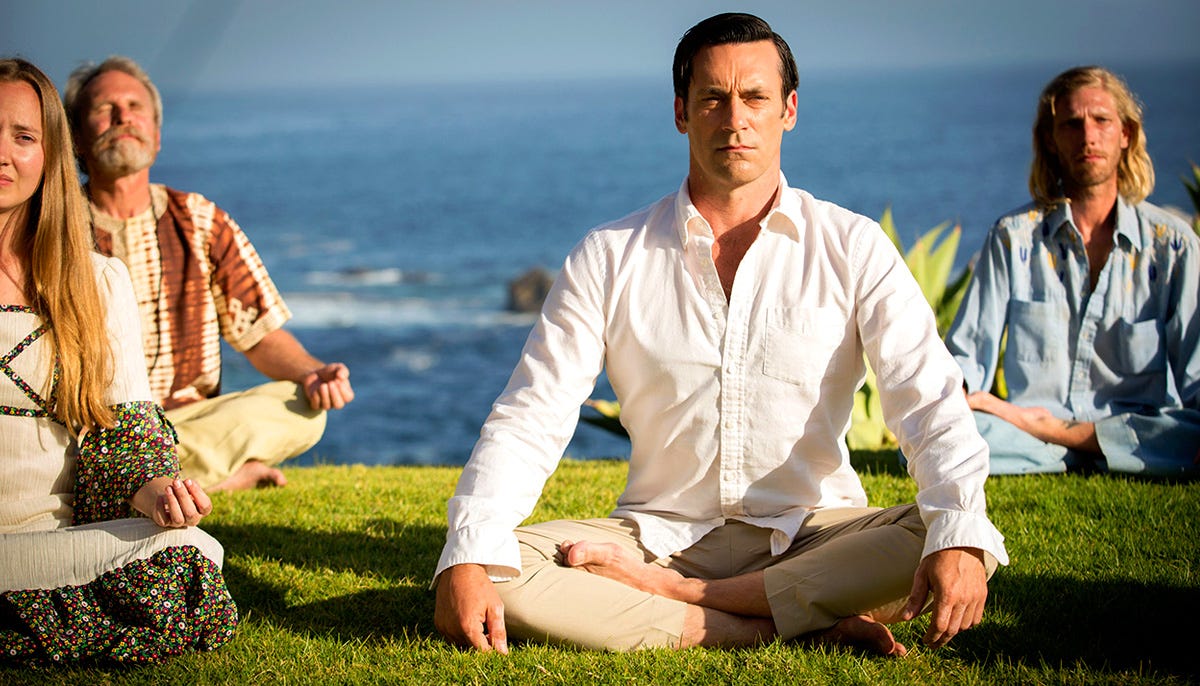
In the later years of Mad Men’s run, there was a criticism commonly heard that the post-Sterling Cooper era, the section of the show eligible for this list, was a little too writerly for its own good, that it forgot to engage in the more straightforward elements that made it so enjoyable in the first place. I always felt this was an unfair criticism, and I personally found the show’s surface pleasures only grew over time. What it did become was more abstract, as the staid early 60s led to the counter culture we all know about from that decade, with Mad Men deftly following along and becoming a slightly different show. The second half of Mad Men was the more absurd, more experimental half, and thus obviously my preference. There seemed to be a growing divide this decade between very serious prestige drama TV and weird auteurist experiments. Mad Men was the one show able to do both at the same time better than anything else.
Best season: 5
Best episode: “Lady Lazarus” (season 5, episode 8)
1. Community (2009-15)
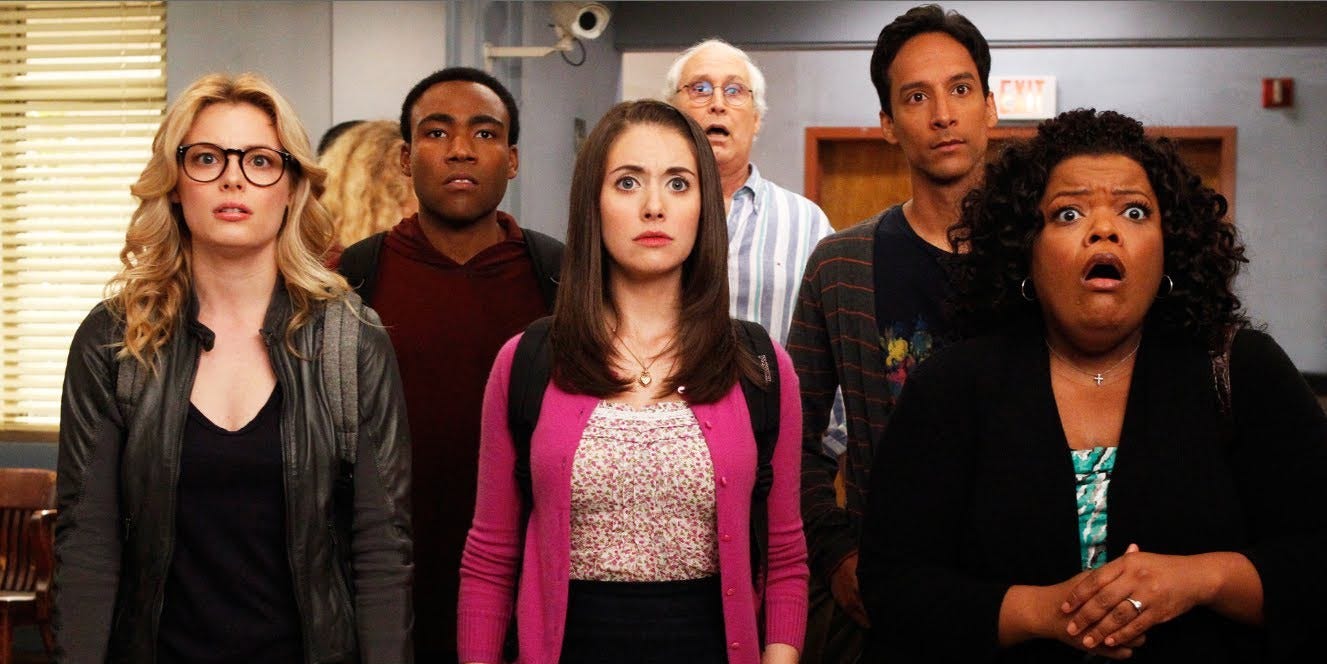
On the face of it, declaring Community to be my number one show of the decade feels ridiculous. Let’s start with the way the show fell apart in the fourth season before rebounding to merely solid fifth and sixth years. Then you deal with the way that, even in its best years, it had a tendency to drop more than a few stinkers every season. And that’s before you get into the very real way some of its humour looks rather less cute and more problematic in 2019, and its continual sexualisation of Annie while being strangely passive-aggressive in romantically pairing her with the much older Jeff. There’s a lot to justly dislike about Community.
But it must be my favourite show of this decade because it’s the purest illustration of what TV can do as a medium. It was able to break into all sorts of formal experiments because it had a format and a weekly slot. It built up a place we wanted to visit every week. But above all else, it brought people together, both on and off screen. Community was so steeped in its own culture that discovering like-minded people who loved it felt important. It was the show that spoke to me the most deeply in the 2010s.
In a decade that proved in many ways so alienating, Community made me feel more human.
Best season: 3
Best episode: “Remedial Chaos Theory” (season 3, episode 3)



